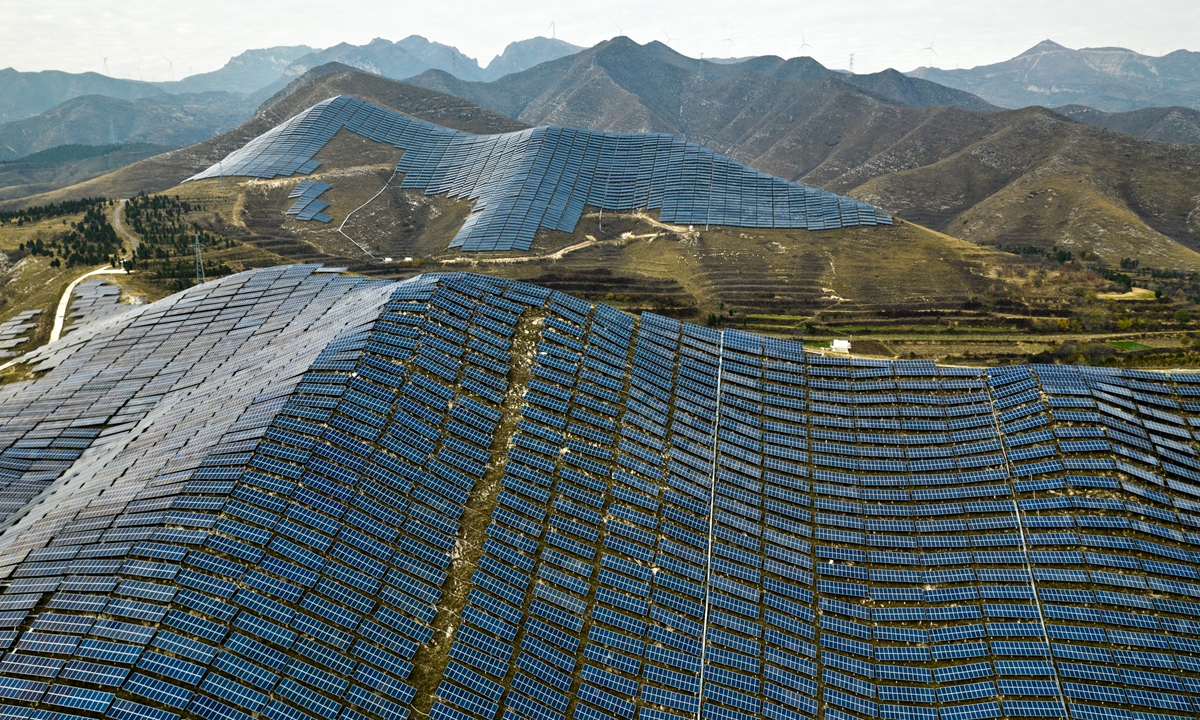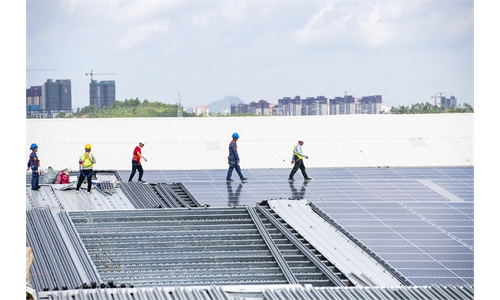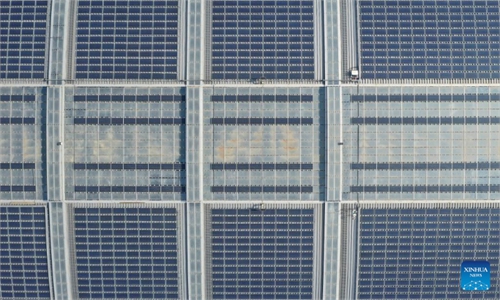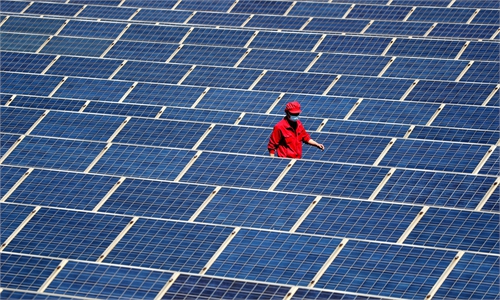
Photovoltaic (PV) panels are arranged at a PV technology base on a barren mountain in Ruicheng county, North China's Shanxi Province on November 13, 2022. Ruicheng has stepped up efforts to develop PV power generation in recent years, delivering green energy to households. Photo: VCG
Chinese solar panel companies and industry insiders on Sunday expressed defiance over the US' reported plan to impose new tariffs on Chinese firms that it deems to be "circumventing" US tariffs.Washington's new crackdown measure will not have much impact on Chinese firms but will force them to speed up steps to enhance their industry chains, they said.
Four solar companies have been accused of such moves by the US Commerce Department — units of BYD Co, Trina Solar Co, LONGi Green Energy Technology Co and Canadian Solar Inc, Reuters reported, noting that it is so far a preliminary decision.
LONGi's production and operation will not be materially affected in the short term, said the company in a statement sent to the Global Times on Sunday.
The Biden administration announced a 24-month tariff exemption in June for solar panels from four Southeast Asian countries. The anti-circumvention inquiry results of the US Department of Commerce will not affect the implementation of the tariff exemption policy, LONGi said.
"We will actively provide evidence that shows we are compliant with the US trade law and not circumventing it… No matter what the final result is, it will not affect the company's medium- and long-term planning in the US market," read the statement.
Analysts said that Washington's crackdown will have a limited impact on Chinese solar panel makers since the PV market in the US is not large on a global scale. But such "decoupling" moves will further dampen the US' goal to reach 100 percent carbon pollution-free electricity by 2035.
Despite Washington's crackdown, China's PV sector maintained strong growth from January to October. Amid surging demand overseas, exports of solar panels hit a record high of $44.03 billion, up 90.3 percent year-on-year, data revealed by the annual conference of China's PV industry showed on December 1.
China's share in all the manufacturing stages of solar panels (such as polysilicon, ingots, wafers, cells and modules) exceeds 80 percent, read a report by the International Energy Agency IEA) in July.
"China has been instrumental in bringing down costs worldwide for solar PV, with multiple benefits for clean energy transitions," said IEA Executive Director Fatih Birol in the report.
Yet, China's PV sector has been one of the industries heavily targeted by the US in recent years under Washington's vicious attempt to contain the development of China. Citing a groundless accusation of "forced labor," the US banned all imports from Northwest China's Xinjiang Uygur Autonomous Region, including PV products.
An anonymous industry insider told the Global Times on Sunday that Washington's repeated crackdowns will force the Chinese PV sector to speed up its layout in the world and accelerate domestic arrangements so as to enhance its industry chains.
Though the "decoupling" push by the US has a limited impact on Chinese firms in the short term, there are potential risks, the insider said, noting that the rise of protectionism and anti-globalization is not conducive to the overseas development of Chinese companies.
The malicious legislation the US has promulgated and enforced on Xinjiang based on the "forced labor" lie has seriously disrupted normal trade in PV products between China and the US, violated market laws and international economic and trade rules, and undermined the stability of the global PV industry and supply chains as well as global action on climate change. It will eventually backfire and hurt the US itself, Zhao Lijian, a spokesperson of China's Foreign Ministry, said on November 11 at a press conference.
Global Times



